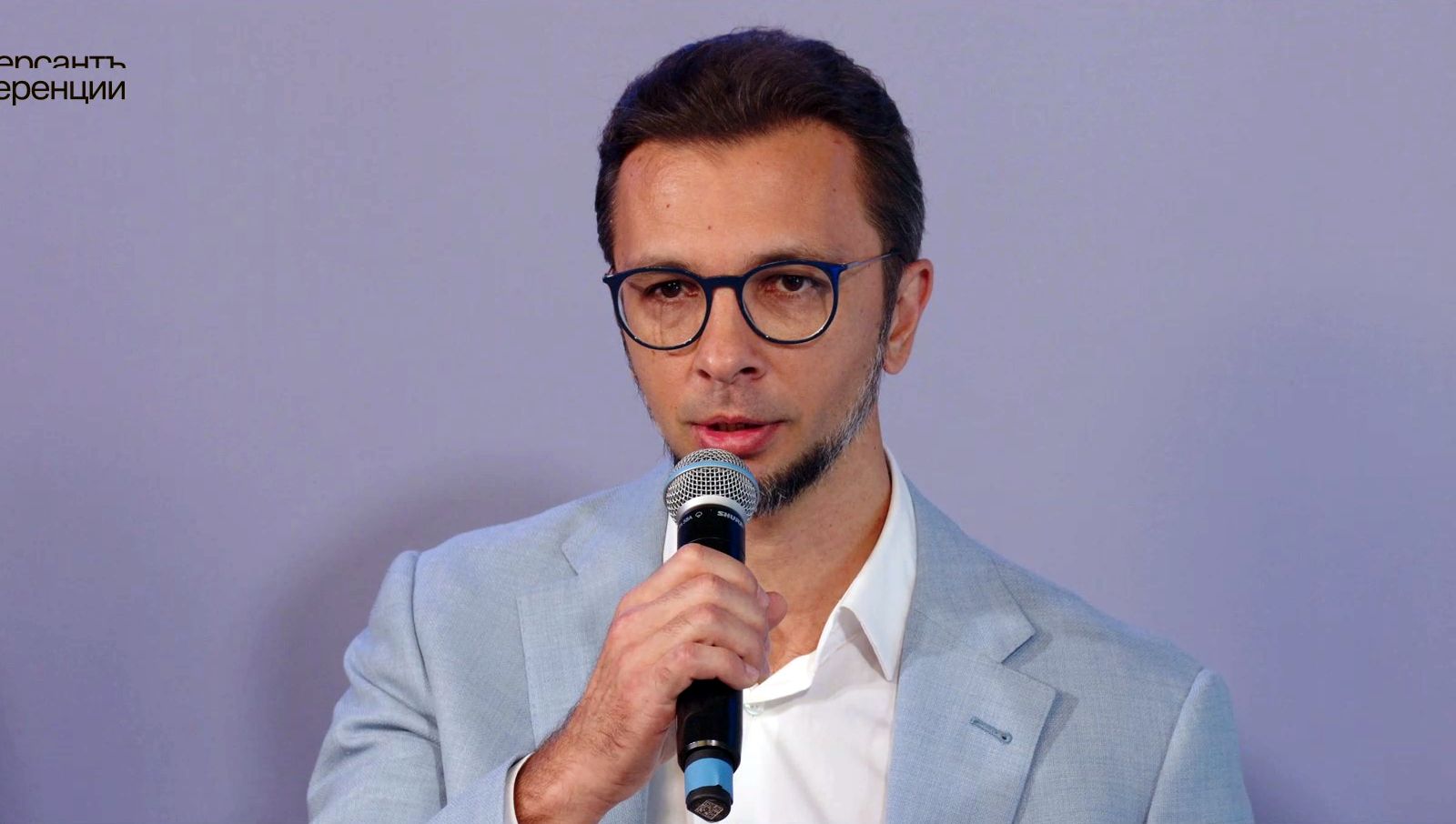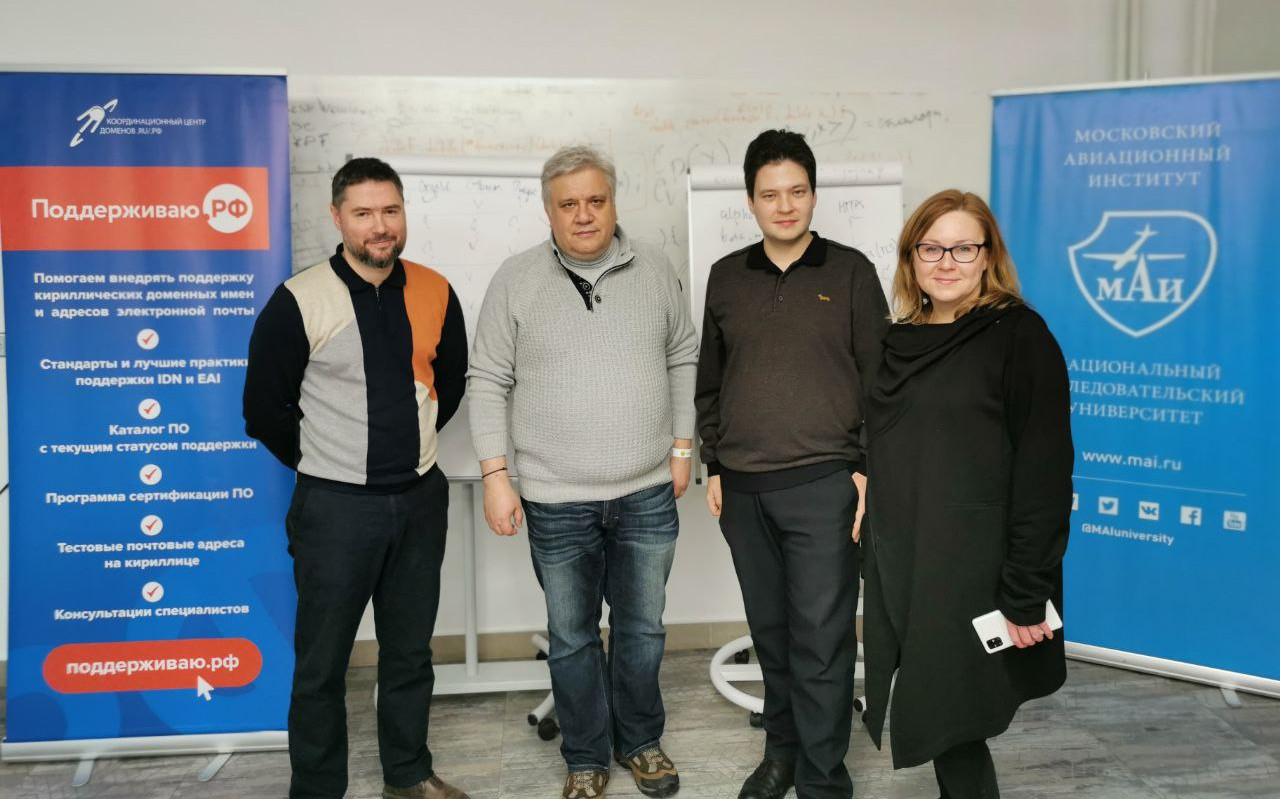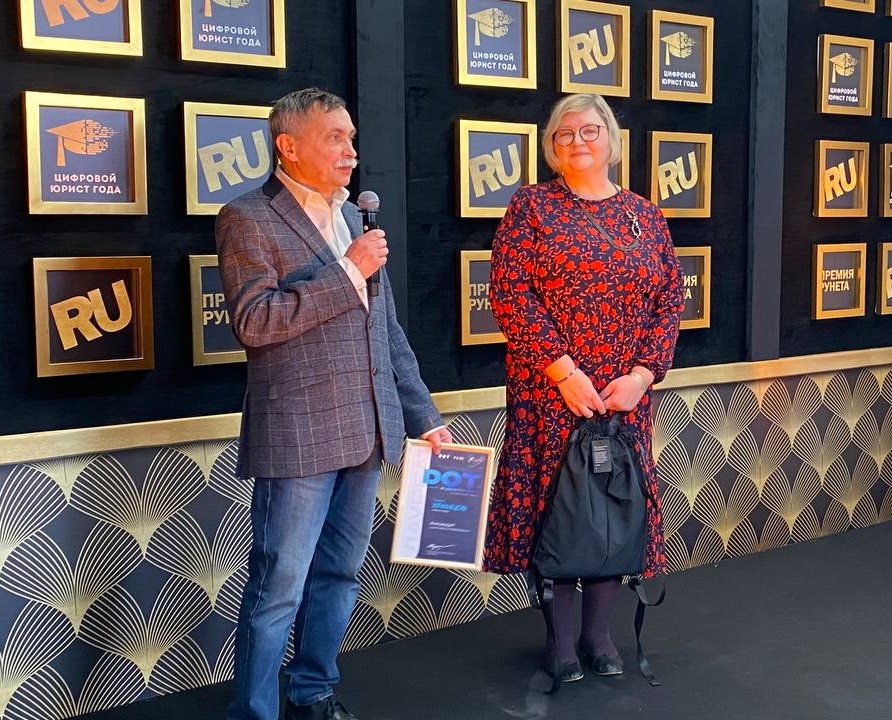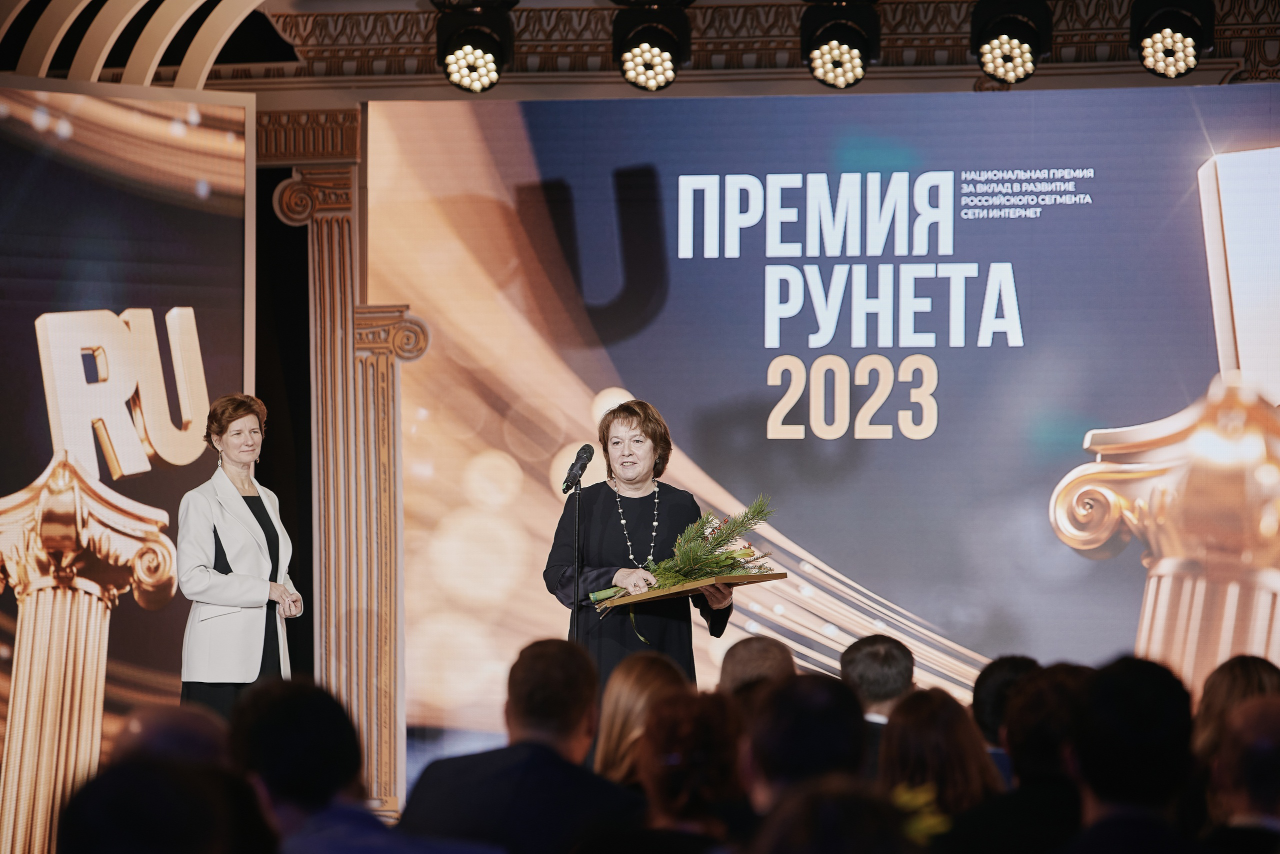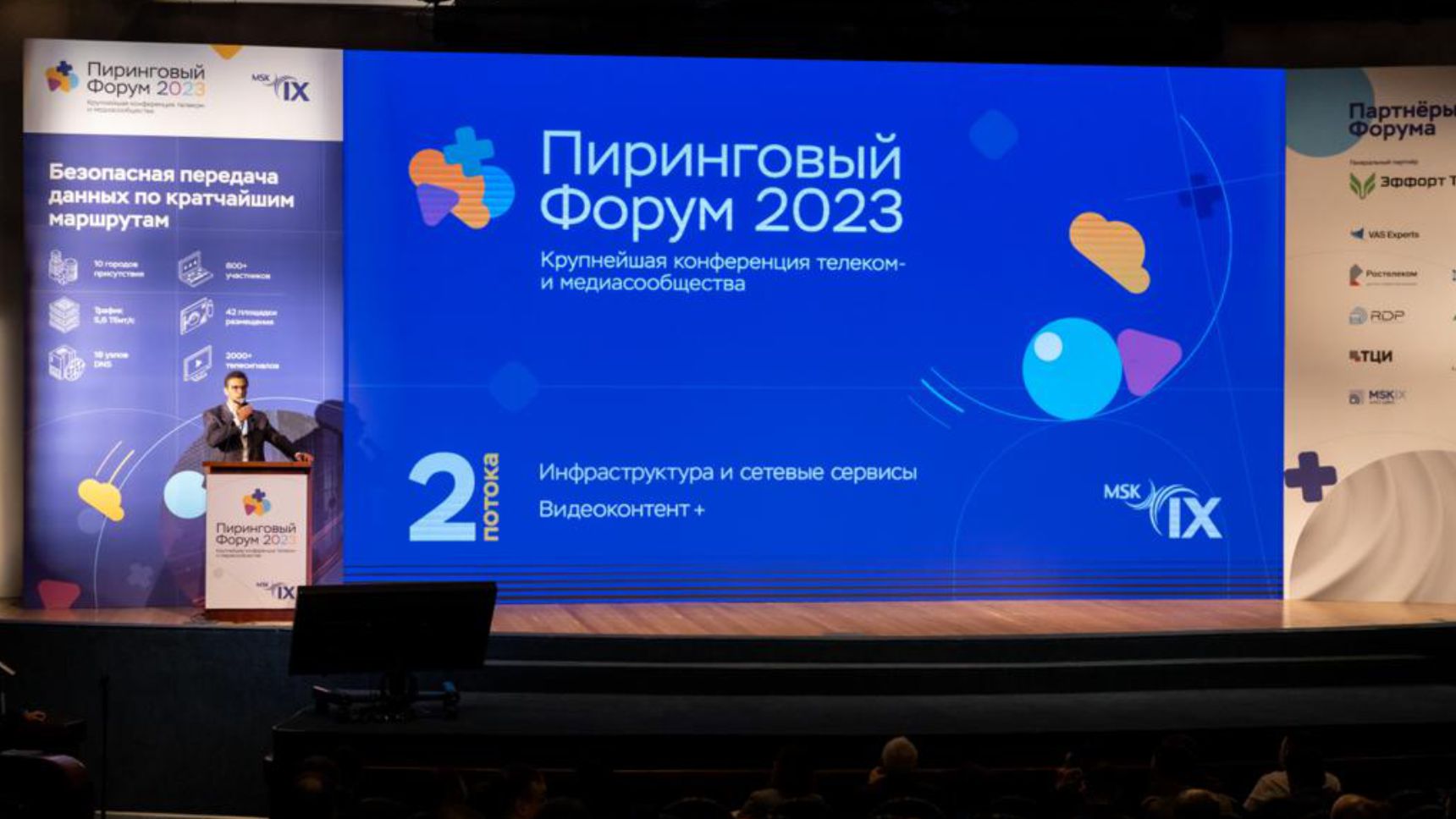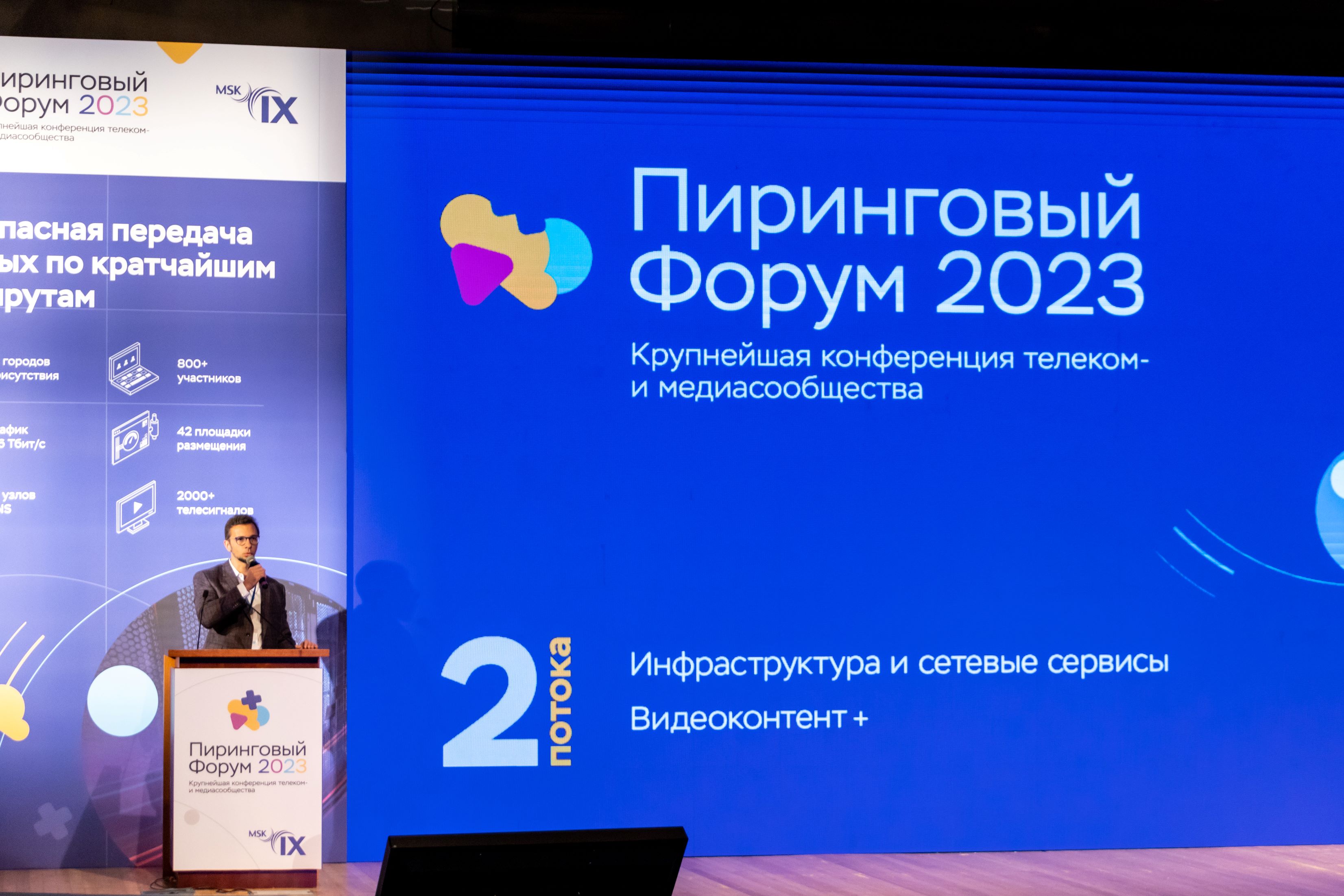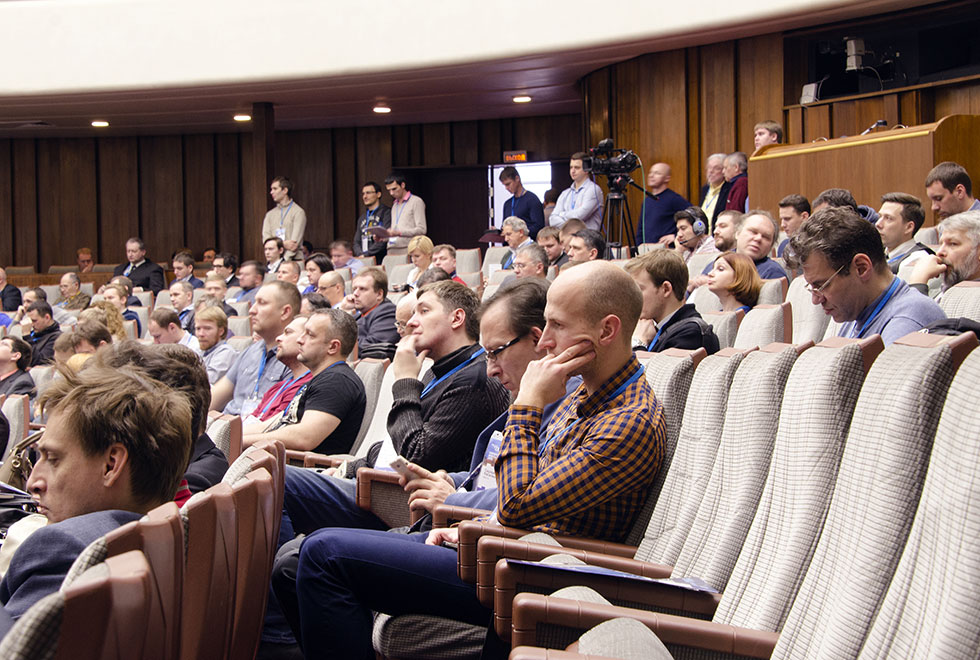MSK-IX contributes to TTS PROkachka conference program

TTS‘23 PROkachka, a major telecom industry conference, took place from August 11 to 13. As per tradition, the organizer, Effort Telecom, brought together Russian telecom industry representatives, including telecom operators, cloud and data center service providers, content providers and representatives from regulatory agencies.
On the first day of the event, Director of MSK-IX Medialogistika project Grigory Kuzin gave a report on Operator Problems and Risks in Online Streaming. He explained why it is better to use private optical data transmission networks rather than the public internet when transitioning from satellite transmission of television signals to land-based networks.
Online streaming by definition carries a high risk of being hacked due to the general availability of the public network. Also, the internet is not a fully reliable delivery medium in terms of signal quality and therefore online streaming is not subject to an SLA on the part of the service provider. Although online streaming seems to be the most financially efficient way to deliver television signals, this option will nevertheless require capital investment (the cost of equipment and software for receiving and converting streams) as well as operational expenses (the cost of provider services including connection and traffic). In addition, there is an actual limit on the number of channels that can be transmitted over the internet. Streaming five television channels is perfectly feasible, but hundreds can be a problem.
“Using secure optical networks is not only the best way to avoid all these problems, but also to deliver on the main task broadcasters and operators are addressing today – ensuring safe, reliable and high-quality transmission of television signals,” Grigory Kuzin explained.
Alexei Kostin, Product and Marketing Director at MSK-IX, organized and moderated two panel discussions as part of the conference program.
The discussion on Data Centers, Connectivity and Services on the second day of the conference was met with great interest from the audience. The panelists included Sergei Khutortsev, Director of the Center for Monitoring and Control of the Public Communications Network at General Radio Frequency Center (GRFC); Alexei Tarasov, CEO of Effort Telecom; Kirill Malevanov, Technical Director at Selectel; founder of NETRACK Alexei Rubakov; and Commercial Director of TeleTower Alexei Polozov.
Sergei Khutortsev shared the past 18 months’ statistics on DDoS attacks. According to the GRFC, the number has increased by 8-10 times over this period. The speaker emphasized that attackers exploit information system vulnerabilities, and this number has also increased substantially.
The agency is working to create a national attack countermeasures system to combat DDoS. The system will enable any owner of an information resource or hosting service to directly contact the GRFC and request traffic filtering, which will occur automatically. The GRFC also plans to create a system that will conduct free testing of all IP addresses in Russia and provide recommendations for eliminating vulnerabilities. Failure to follow the recommendations will entail fines and even the physical suspension of vulnerable systems.
Sergei Khutortsev pointed out that, under the recently adopted federal law, 406-FZ, from December 2023, all hosting providers will be required to register, and legal entities using the hosting provider’s services will have to be authenticated.
The panelists also thoroughly discussed the present and future development of the data center market. They noted that the industry is generally showing an upward trend, and some companies even show growth of up to 40 percent per year.
At the same time, the market varies greatly across the country, with large data centers concentrated in big cities, and almost no activity in the regions. Experts believe there are two main reasons for this situation: the regional governments are reluctant to invest in this service, and, there is simply no demand for it in the regions.
The main data center industry trend we are likely to see in the future is movement away from the provision of rack space and server equipment towards the provision of service and cloud solutions. Shifting to a cloud service gives the data center an EBITDA of about 50 percent, so ready-made services in the cloud are the most promising business development option.
On the final day of TTS PROkachka, Alexei Kostin moderated a panel discussion on media content delivery and traffic exchange points. The panelists included Yaroslav Gorodetsky, CEO of CDNvideo; Oksana Antipenko, Head of Sales at MSK-IX; Vladislav Dubrov, CEO of 24chasaTV; Daniil Saversky, Commercial Director of TotalVideo; and Yulia Goncharova, Medialogistika Project Manager at MSK-IX.
According to Yaroslav Gorodetsky, traffic has been growing significantly ever since the beginning of the coronavirus pandemic, with online movie platforms showing a particularly noticeable increment. Oksana Antipenko added that over the past year and a half, the market has seen an almost complete replacement of the content of foreign channels that left the Russian market with domestically produced content. This content is popular with consumers, therefore, the market continues to grow at the same pace; the B2C segment accounts for approximately 80 percent of media traffic, and B2B, for 20 percent.
According to Vladislav Dubrov, the recent incidents and problems with satellites have become the main factor in promoting traffic in terrestrial networks. Even if the situation returns to normal, he noted, market players have already realized that delivery via terrestrial networks is more reliable. The same effect was observed during the pandemic – when people tried working from home and using online streaming services to watch films, they discovered it was convenient. In much the same way, operators and broadcasters have learned the benefits of land-based transmission of television signals now.
Yulia Goncharova agreed, noting that Medialogistika has been receiving a barrage of requests for terrestrial delivery since June 12, when the problems with the satellites began. Even former skeptics of using land-based networks for streaming television have been applying to use the network.
The participants of the discussion generally agreed that the content delivery market would develop along with the further growth of media content consumption. At the same time, the more options on the market, the better for operators and broadcasters, who will be able to choose the arrangement that best suits them – IX, CDN or some hybrid options. The experts pointed out that the peculiarities of the industry’s regulation are likely to present the main challenge.
Alexei Kostin, Product and Marketing Director at MSK-IX: “The issues raised in the panel discussions not only brought together an impressive group of high-status experts, but also kept the conference participants’ attention. We had a full house at both sessions, and the speakers’ reports prompted a vivid response from the audience and led to open discussion. This shows that the issues picked for discussion are of concern to the telecom community, and that discussing them with experts is useful for those in the market.”
{:.report__citation}
